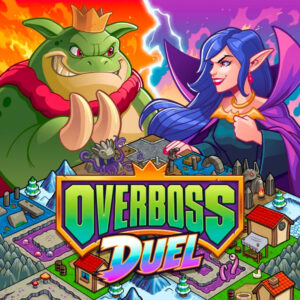 Back in 2021, I reviewed the tile-laying game Overboss from Brotherwise Games. It got high marks from me for its replay value, easy to learn rules, and streamlined mechanics. My biggest gripe with the game was from setup and tear-down. Having to pick apart all the piles and tokens at the end was a pain.
Back in 2021, I reviewed the tile-laying game Overboss from Brotherwise Games. It got high marks from me for its replay value, easy to learn rules, and streamlined mechanics. My biggest gripe with the game was from setup and tear-down. Having to pick apart all the piles and tokens at the end was a pain.
However, it appears the folks at Brotherwise may have been listening as Gen Con this summer brought us the release of Overboss: Duel. This is a stand-alone (although it can be used as an Overboss expansion), two-player-only version of Overboss. Is the quicker setup along with the modified rules and overall win? Let’s find out.
Gameplay Overview:
If you have played Overboss, you’ll find a lot of similarities in the ruleset here. In fact, the rulebook even has a dedicated section for returning players. But for those new, never fret, the turn structure is actually quite simple.
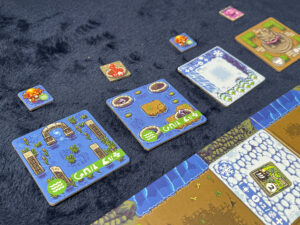
On a player’s turn they will draft one set of tiles and tokens from the 4 available in the market. The tile must be placed somewhere on the shared board (either on your half or your opponent’s). The token must then be placed on a tile (if it’s a monster). There are a few tiles with specific rules on what tokens can be placed on them, but for the most part, you are free to place tokens anywhere. Although you do get bonuses for placing monsters on matching terrain types. After that, the market is refilled and the next player goes.
I should note that new to Overboss Duel is that many tiles now have immediate actions when played. For example, the Road tile lets you swap any two tokens on the board when played, while the spawning pool lets you draw an extra token from the bag.
The game ends when all the spaces on the board are filled with tiles. Players will score the tiles and tokens on their half of the board. Most points wins.
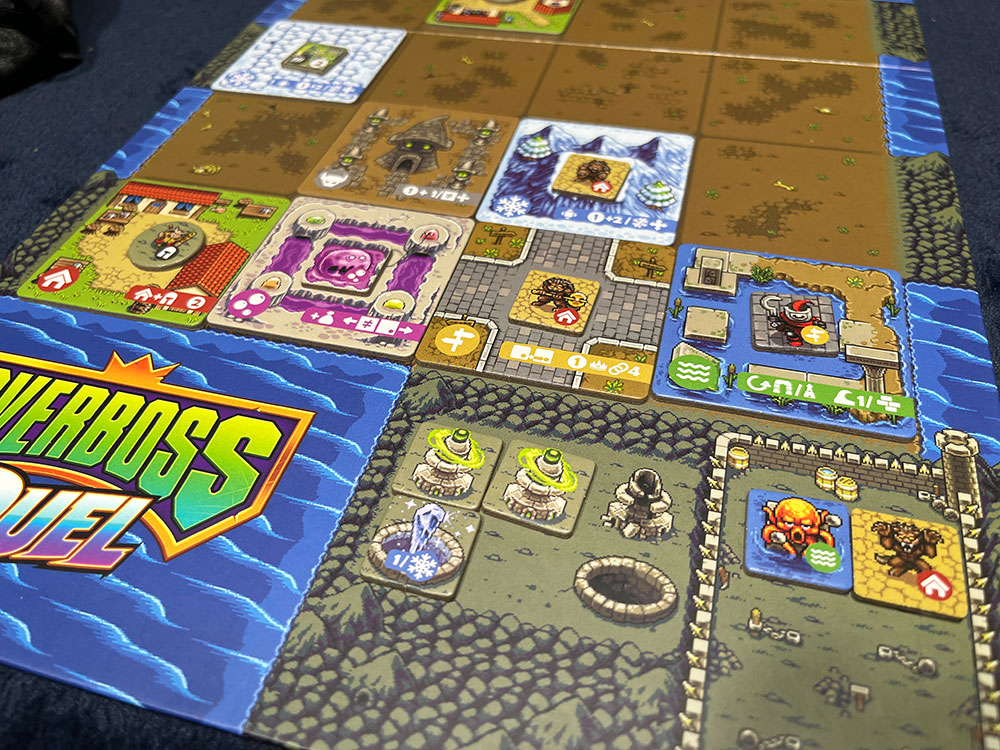
Game Experience:
While I really enjoyed Overboss, this new Duel version was somewhat hit or miss for me. I actually enjoyed the multiplayer solitaire nature of Overboss, so the “take that” nature of Duel wasn’t really what I was looking for. I much preferred to create my own kingdom without having my opponent randomly drop-down tiles I didn’t want on my half.
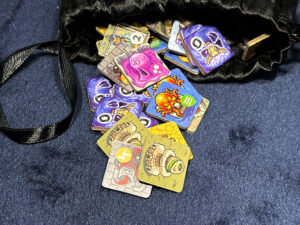
That being said, I did appreciate the quicker setup time of the game. Now with only 6 tile types (7 if you include the promo expansion) you just shuffle and go. No more taking tiles in or out. Getting the game faster to the table was definitely a much-welcomed change.
And I’m also still a fan of the tile drafting mechanic. The grab a tile/token pair was made popular recently by SdJ winner Cascadia. While I wasn’t really a fan of Cascadia (my one play was enough for me), it still works really well in Overboss Duel. It’s nice to have options for your turn of where you place your monster and it creates interest when drafting. Do you go for the tile you really want or for the token?
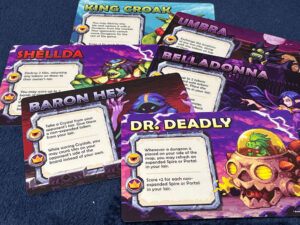
However, because of the conflict-oriented nature of Overboss Duel, almost all the tiles have an immediate effect. Most of this time you will be able to slide tiles around or swap tokens. This is probably necessary since it’s so easy for your opponent to screw with your side of the board. The downside is that it makes learning what the tiles do a lot harder. You have to explain not only how each tile scores, but also what you can do once you play it. And since the game lacks any kind of player aid, you’ll be passing the rulebook back and forth quite often for your first few games.
Finally, there are the boss cards. They each provide a unique way to score and a “on reveal” power. I found this a bit hit or miss as well as some seemed a bit more useful than others. I had one that let me refresh spires as my power. But I never actually was able to draft any. Compare that to my opponent who had Shellda and could Destroy any two tiles when revealed, I would rather have had his boss card.
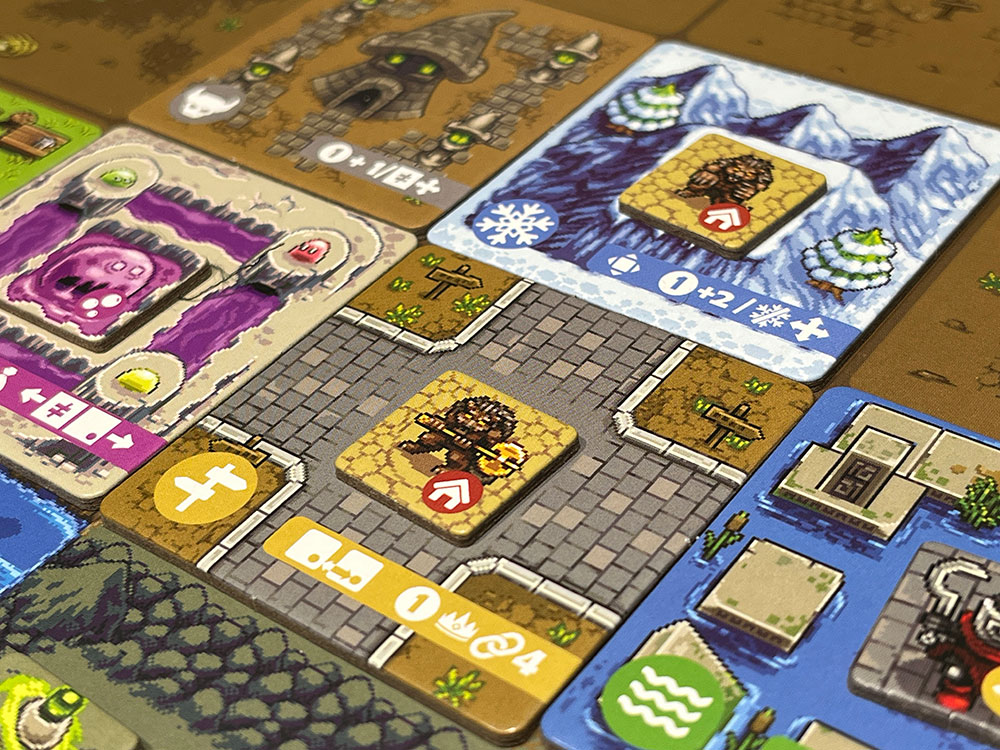
Final Thoughts:
While Overboss: Duel is a good game, I much prefer the original. The high interaction, take that aspect of the two player version just didn’t work as well for me. The mean nature of the game feels at odds with the kingdom building, victory point-seeking gameplay. Plus, the learning curve on the tiles is definitely higher with the immediate powers.
If you are a fan of conflict-heavy or high-player interaction games, this one might be your jam. But if you like your tile-laying games a bit more casual as you seek out your victory points, then definitely stick with the OG Orerboss.
Final Score: 3 Stars – Quicker playing time and setup than the original, but the take that mechanics were really what I was looking for.
 Hits:
Hits:
• Quick setup and tear down
• Fun, thematic art
• The drafting gameplay is still great
Misses:
• Too easy for your opponent to screw with you
• Could use a player aid
• Boss powers don’t feel very even






















